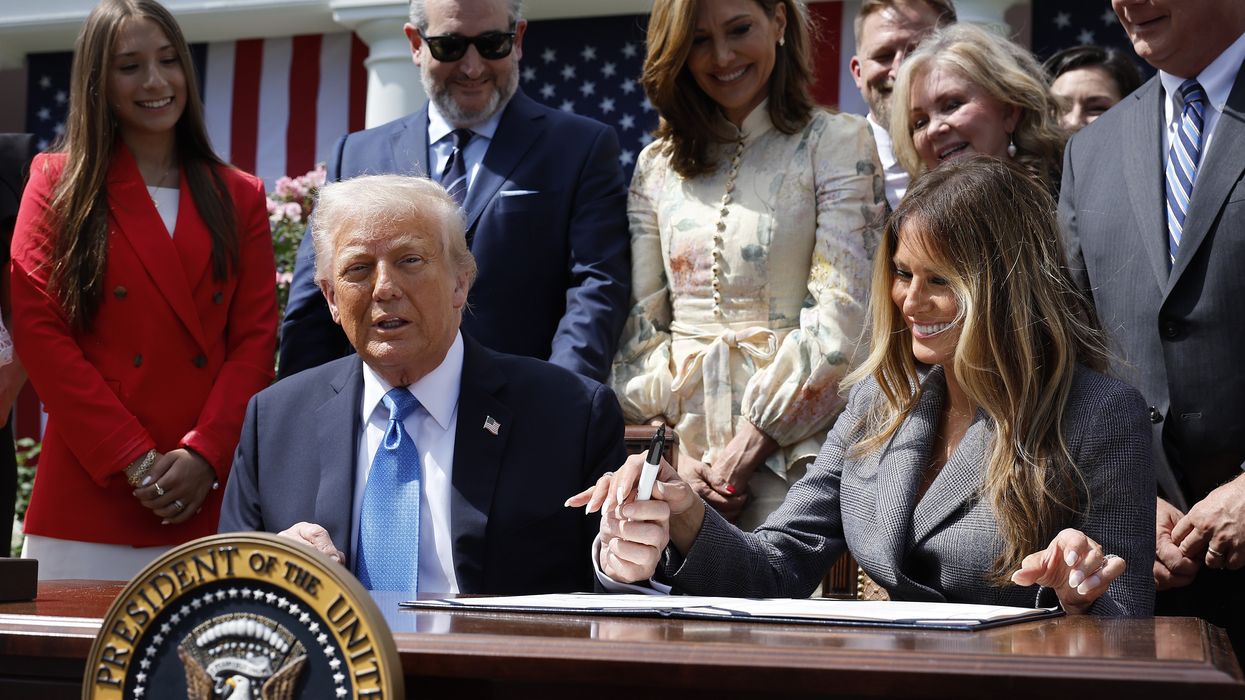US First Lady Melania Trump has welcomed a new law criminalising the non-consensual sharing of explicit images, including AI-generated deepfake content, calling it a major step towards protecting children and families from online exploitation.
The Take It Down Act, signed into law by President Donald Trump, makes it a federal offence to post "intimate images", whether real or digitally fabricated, without the subject’s consent. Under the legislation, individuals found guilty of intentionally distributing such content could face up to three years in prison. The law also compels technology companies to remove the offending material within 48 hours of notification.
The bill, which passed with overwhelming bipartisan support, 409 votes to 2 in the House of Representatives and unanimously in the Senate in February, has been one of the most widely backed pieces of legislation during Trump’s second term in office. It marks the sixth bill signed into law since his re-election, with the administration often favouring executive orders to implement its agenda.
Melania Trump, who has largely kept a low public profile, played a key role in advancing the legislation. The first lady described the law as a "national victory" and stressed its importance in shielding children from harmful online behaviour.
“This legislation is a powerful step forward in our efforts to ensure that every American, especially young people, can feel better protected from their image or identity being abused,” she said. “It will help parents and families safeguard children from online exploitation.”
Melania Trump first appeared publicly in support of the legislation in March during a solo roundtable event on Capitol Hill, where she urged lawmakers to pass the bill. “It’s heartbreaking to witness young teens, especially girls, grappling with the overwhelming challenges posed by malicious online content, like deepfakes,” she said at the time.
The law addresses two main forms of abuse: revenge porn the non-consensual sharing of intimate real images and deepfake pornography, where AI is used to create fake explicit material by inserting someone’s face into pornographic content. These practices have become increasingly common, particularly targeting women and public figures.
Paris Hilton, businesswoman and DJ, publicly supported the legislation, calling it “a crucial step toward ending non-consensual image sharing online”. Major tech firms, including Meta, TikTok and Google, have also backed the new law.
White House Press Secretary Karoline Leavitt said the first lady was “instrumental” in rallying support for the bill and ensuring its passage through Congress.
Despite the strong support, the legislation has attracted criticism from some digital rights organisations. The Electronic Frontier Foundation (EFF) warned that the law’s broad scope could have unintended consequences for free speech and privacy.
“While protecting victims of these heinous privacy invasions is a legitimate goal, good intentions alone are not enough to make good policy,” the group said. “As currently drafted, the Act mandates a notice-and-takedown system that threatens free expression, user privacy, and due process, without addressing the problem it claims to solve.”
The Internet Society, another advocacy group for digital privacy, raised concerns that the law could undermine encryption and pose “unacceptable risks to users’ fundamental privacy rights and cybersecurity”.
Critics argue that the bill, while well-intentioned, lacks adequate safeguards to prevent misuse and could result in overreach, affecting legal online content, including LGBTQ+ material, adult entertainment, and political commentary.
Nonetheless, supporters maintain that the new law fills a critical gap in US legislation by targeting a growing form of online abuse and sending a strong message against digital exploitation.





